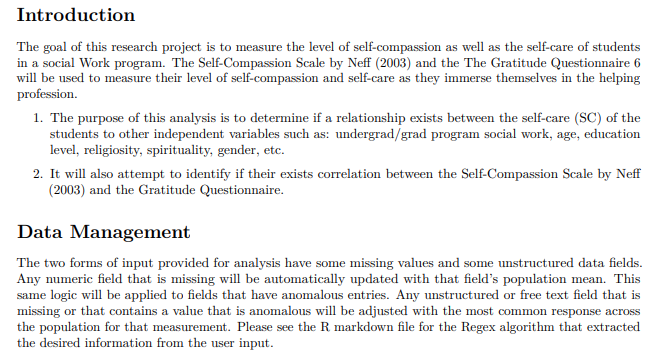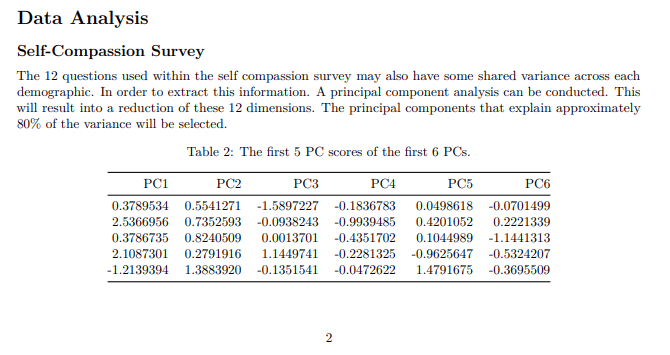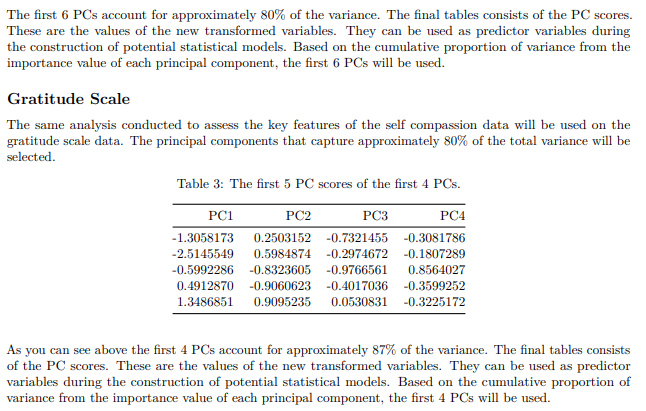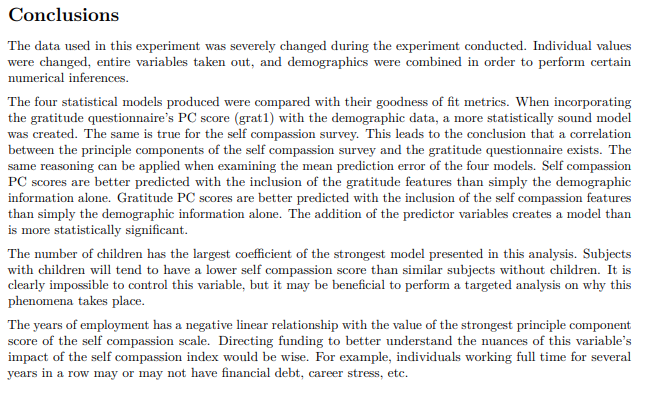Social Science: Compassion
The goal of this research was to measure the level of self-compassion as well as the self-care of students in a social work program. The Self-Compassion Scale by Neff (2003) and a questionnaire provided by the client will be used to measure patients level of self-compassion and self-care as they immerse themselves in the helping profession.
The purpose of this analysis is to determine if a relationship exists between the self-care (SC) of the patients to other independent variables such as: undergrad/grad program social work, age, education level, religion, spirituality, gender, etc. It will also attempt to identify if there exists correlation between the Self-Compassion Scale by Neff (2003) and the gratitude questionnaire.
Ultimately the Glat team found which components of the questionnaire best defined the patient population with respect to the targeted variables. The number of children has the largest coefficient of the strongest model presented in this analysis. Subjects with children will tend to have a lower self compassion score than similar subjects without children. Finally, the years of employment has a negative linear relationship with the value of the strongest principle component score of the self compassion scale.




Credits
Firstname Lastname
Title / Role
Firstname Lastname
Title / Role
Firstname Lastname
Title / Role